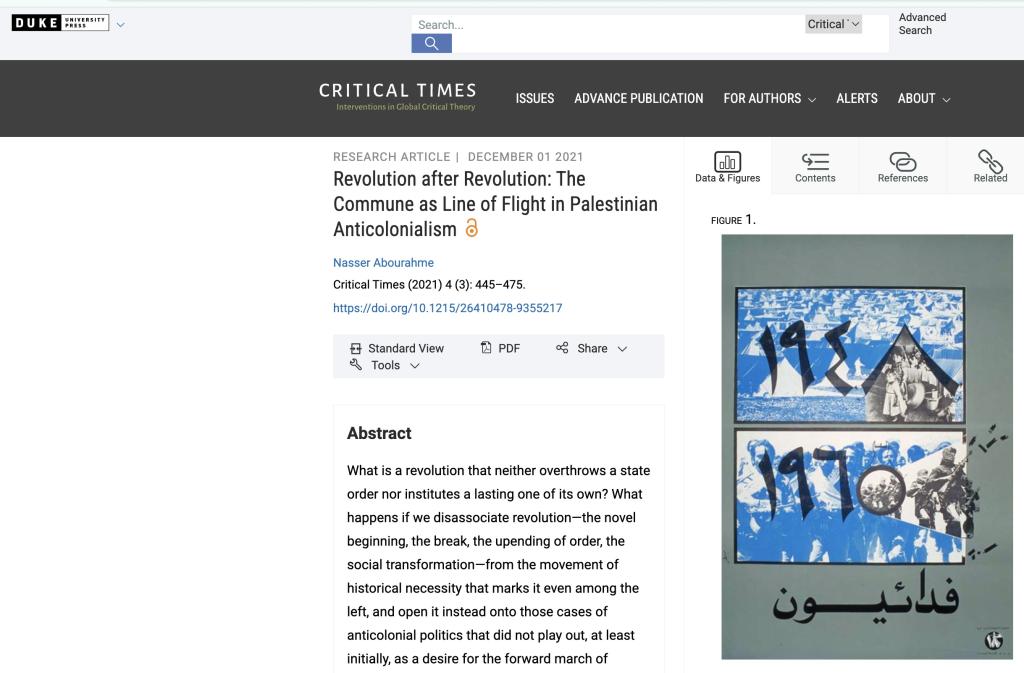Abstract
What is a revolution that neither overthrows a state order nor institutes a lasting one of its own? What happens if we disassociate revolution—the novel beginning, the break, the upending of order, the social transformation—from the movement of historical necessity that marks it even among the left, and open it instead onto those cases of anticolonial politics that did not play out, at least initially, as a desire for the forward march of progress and its terminus in the state form? In these cases, how do we move past the language, or more precisely, the grammar of failure when talking about revolution? What if the Palestinian Revolution, whose fate follows the rise and waning of tricontinental Third Worldism, might be read not as the defeated end of a revolutionary historical arc but as the start of a line of flight? This essay makes two points. First, what was revolutionary about the Palestinian anticolonial experience was neither the spectacularity of its armed insurrection nor its call for radical equality but its capacity to creatively make autonomous territory and declare communes. Second, reading this history poses questions about what a renewed encounter between the revolution concept and the anticolonial imperative might once again do.
Source:
https://read.dukeupress.edu/critical-times/article/4/3/445/173562/Revolution-after-RevolutionThe-Commune-as-Line-of

